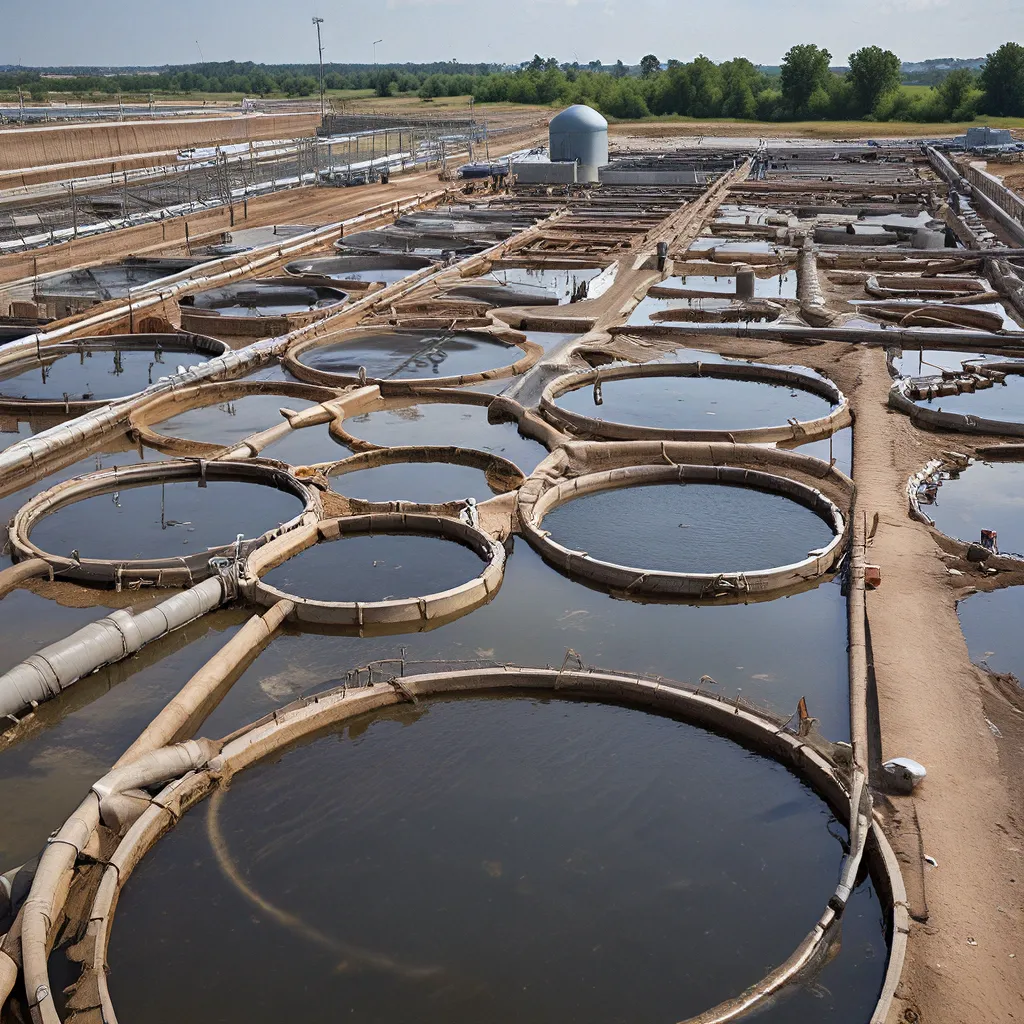
As a seasoned professional in the wastewater treatment industry, I’ve had the privilege of witnessing firsthand the incredible strides we’ve made in managing our precious water resources. But the truth is, our work is far from over. In fact, I believe we’re on the cusp of a transformative revolution – one that will forever change the way we approach sustainability.
You see, it’s become increasingly clear that the water-energy-food (WEF) nexus is the key to unlocking a more sustainable future. By understanding the intricate relationships and interdependencies between these three critical resources, we can unlock a wealth of untapped potential.
Let me paint you a picture. Imagine a world where wastewater treatment plants don’t just purify our water, but also generate renewable energy and even produce nutrient-rich fertilizers for our crops. A world where our food production systems are designed to minimize water and energy usage, while our energy sector harnesses the power of wastewater to fuel its operations.
This may sound like a pipe dream, but the reality is that integrated optimization frameworks are already proving the immense value of this approach. By taking a holistic, nexus-based perspective, researchers have uncovered staggering potential for reducing resource consumption, greenhouse gas emissions, and even economic costs – all while enhancing the overall synergy and sustainability of urban systems.
Uncovering the Hidden Potential of the WEF Nexus
Let’s dive a little deeper. Recent studies have shown that in cities like Beijing, the optimization of the WEF nexus can lead to reductions of up to 21% in total cumulative exergy consumption, 29% in greenhouse gas emissions, and 16% in economic costs – all when compared to a business-as-usual scenario.
But the true power of the nexus lies in the added value it brings. By considering the interconnections and synergies between water, energy, and food systems, the WEF nexus approach can contribute an additional 21% reduction in cumulative exergy consumption and a 38% reduction in greenhouse gas emissions.
Imagine the implications of these findings for wastewater treatment. By integrating our operations with energy and food production, we can dramatically improve resource efficiency and minimize environmental impacts – all while lowering costs for our customers.
Balancing the Resource-Environment-Economy Trilemma
Of course, achieving this delicate balance is no easy feat. The resource-environment-economy trilemma is a complex challenge that requires careful consideration of trade-offs and synergies.
For example, while the scenarios focused on energy production demonstrated the largest reductions in cumulative exergy consumption and greenhouse gas emissions, they also tended to drive up economic costs. Conversely, the food consumption-based scenarios were more effective in mitigating economic costs, but had a relatively smaller impact on resource and environmental targets.
This is where the power of the integrated optimization framework shines. By considering the interconnections between all three systems, we can identify optimal pathways that maximize synergies and minimize trade-offs – ultimately leading to the most sustainable outcomes.
Consumption-Side Solutions: The Key to Urban Sustainability
One of the most intriguing findings from this research is the importance of consumption-side policies in driving urban sustainability. In fact, scenarios focused solely on optimizing the consumption of water, energy, and food were responsible for over 50% of the potential reductions in resource consumption, emissions, and economic costs.
This makes perfect sense when you consider that cities are heavily reliant on imported resources to meet their demands. By targeting changes in consumption patterns and behaviors, we can unlock a treasure trove of efficiency gains and environmental benefits.
The Road Ahead: Embracing Complexity and Uncertainty
Of course, implementing the WEF nexus approach is no easy task. It requires us to embrace the complexity and uncertainty inherent in these interconnected systems. We must be willing to experiment, adapt, and learn as we navigate this uncharted territory.
But I’m convinced that the potential rewards far outweigh the challenges. By optimizing the WEF nexus, we can transform wastewater treatment from a necessary burden into a strategic asset that enhances urban sustainability and contributes to the achievement of the UN Sustainable Development Goals.
As I look to the future, I see a world where wastewater treatment plants are hubs of innovation, catalyzing the synergies between water, energy, and food to create truly sustainable systems. It’s an exciting prospect, and one that I’m passionate about exploring further.
So, let’s embark on this journey together. Let’s push the boundaries of what’s possible, embrace the complexity, and harness the power of the WEF nexus to build a more resilient, equitable, and sustainable future – one wastewater treatment system at a time.
Alpha Wastewater is at the forefront of this water-energy-food nexus revolution, providing advanced solutions and expert guidance to help communities optimize their resource utilization and unlock the synergies for a sustainable future.